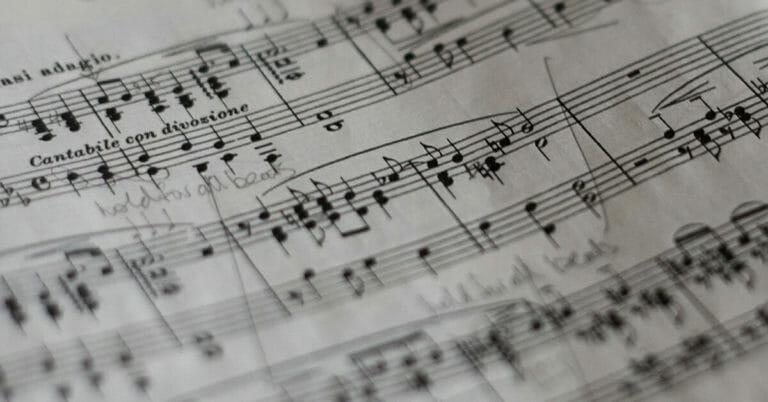By Clare Nina Norelli · March 10, 2018

On March 4th, 2018, the 90th annual Academy Awards ceremony took place, with folks from all corners of the entertainment industry turning their attention to its glamorous and highly esteemed proceedings. In the lead-up to the Awards, even the most casual of moviegoers have some idea of the nominees for best picture, best director or best actor and actress. Less discussed, however, are the nominees for best original music score. This year’s nominees were predominantly veteran film composers with huge bodies of work behind them. Let’s take a look at some of the best scores of their careers.
John Williams is the household name when it comes to film scores—he’s one of the few composers that non-film music aficionados can name and whose music they can easily identify. Williams has worked with some of the most critically acclaimed directors and written innovative film music that has both referred to and expanded on, the traditions established by the composers of classic cinema. Forty years before the Star Wars score he is nominated for this year, he wrote the iconic themes for the film that started it all—George Lucas’ Star Wars. Williams’s original Star Wars score—from the triumphant fanfare of its “Main Title” to the threatening “Imperial Attack” and restrained beauty of “Princess Leia’s Theme”—sets the emotional tone for the space opera and its sequels. His music for Star Wars is beloved by many, often providing a gateway for some into the world of film music, and in 2005 the American Film Institute named the Star Wars score the most memorable score in the history of American cinema.
It seems as though Hans Zimmer works on every second score in cinema these days, and this is probably due to the fact that the highly versatile and sought-after composer has successfully written music for many genres of cinema—comedy, drama, action, kids films—since the early 1980s. Over the last decade, he has contributed scores to nearly all of Christopher Nolan’s films, the pinnacle of their work together being 2010’s Inception. Zimmer’s electronic-heavy score for the film is permeated with assaultive brass and haunted guitar lines, and its unique orchestration creates a hypnotic ambience of unease, supplying much of the film’s crucial underlying tension.
Carter Burwell may not be as well-known as John Williams or Hans Zimmer, but for those of us that count ourselves as film music fans, he’s long been a favorite. His partnership with Joel and Ethan Coen is one of the great director/composer alignments of cinema, first working with the directors on the neo-noir Blood Simple (1984) (also the composer’s first film) and more recently, Hail, Caesar! (2016). His haunting score for Fargo (1996) features unique orchestration which includes the Hardanger – a Scandinavian fiddle (apt, given the region in which the film is set has a large number of people of Scandinavian descent). Melancholic folk melodies are also key to Burwell’s Fargo score, imbuing the sometimes-violent events onscreen with a sense of humanity.
Alexandre Desplat is an incredibly prolific composer who has scored close to two hundred films. This year, Desplat won the Oscar for his score for Guillermo del Toro’s acclaimed The Shape of Water. Of his many varied scores, it is hard to choose his best, but the music he has written for Wes Anderson’s The Grand Budapest Hotel has proven incredibly popular and won the Oscar for Best Original Score at the 2015 Academy Awards. Desplat’s music for the film took influence from mid-century Mittleuropa (German for “central Europe”), employing the instruments, rhythms and harmonies of the region to inform his evocative score.
Jonny Greenwood, who is most well-known as guitarist for the English rock band Radiohead, is the least established of all the film composers nominated. Since first working with Paul Thomas Anderson in 2007 on There Will Be Blood, he has written music for each of Anderson’s subsequent films. Greenwood’s string-based score for TWBB is an extension of the music he wrote for the 2005 BBC-commission suite, “Popcorn Superhet Receiver” and his first film score, Bodysong (Pummell, 2003). The film’s central antihero (the ruthless oil tycoon Daniel Plainview) offers little in the way of words to explain his motivations, but Greenwood’s score, which is alternatively heartbreaking and menacing, provides us with an emotional blueprint and speaks where Plainview does not.
 Clare Nina Norelli is a composer, musician, teacher and writer. She currently writes Scores on Screen, a column on film music for MUBI’s Notebook and in February of 2017 her first book Soundtrack from Twin Peaks was published as part of Bloomsbury’s 33 1/3 series. You can follow her on twitter @clarenorelli.
Clare Nina Norelli is a composer, musician, teacher and writer. She currently writes Scores on Screen, a column on film music for MUBI’s Notebook and in February of 2017 her first book Soundtrack from Twin Peaks was published as part of Bloomsbury’s 33 1/3 series. You can follow her on twitter @clarenorelli.
For all the latest from The Script Lab, be sure to follow us on Twitter, Facebook, and Instagram.